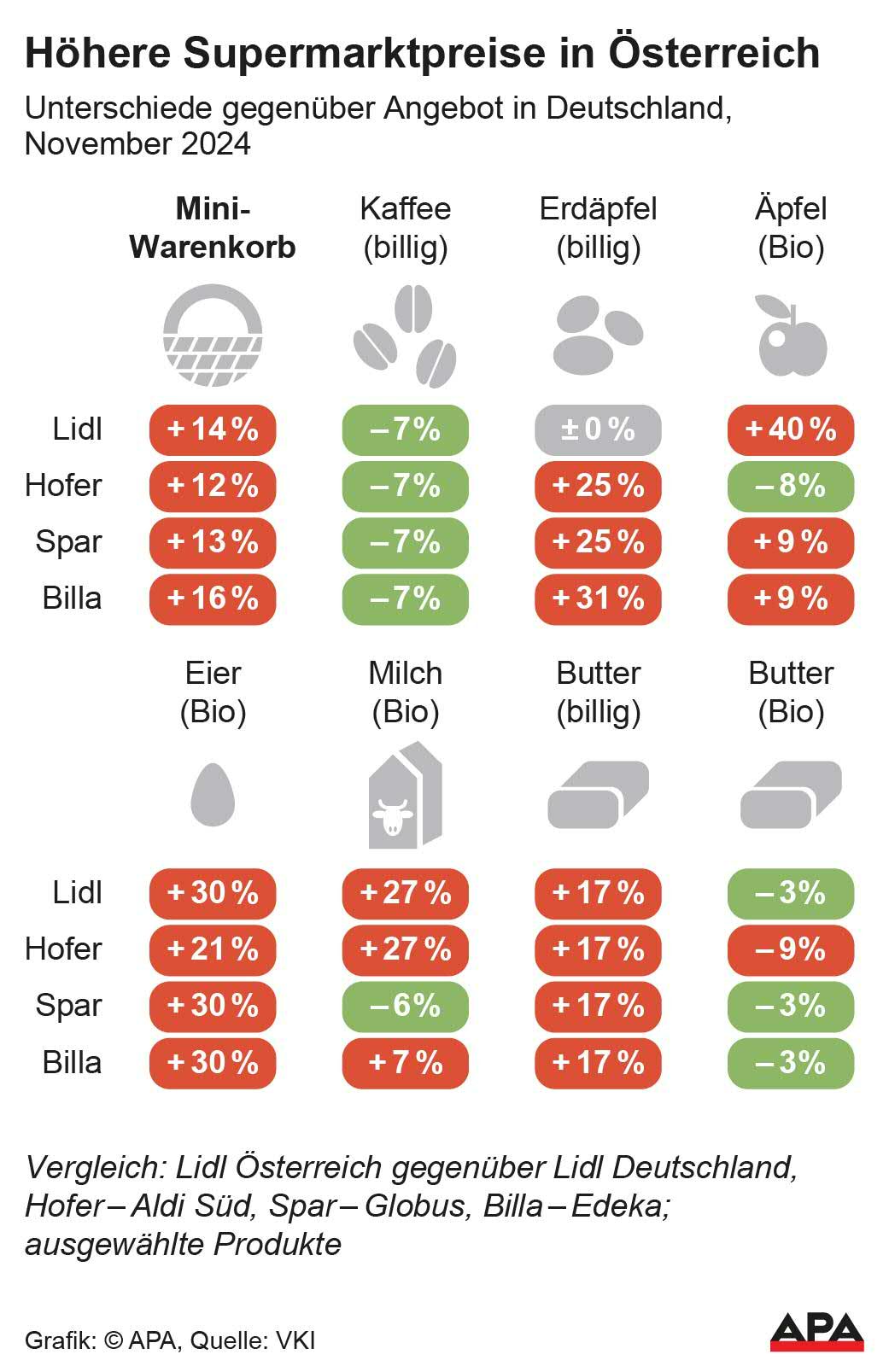Supermarket Shopping is Significantly More Expensive in Austria than in Germany

An analysis published on Thursday by the Association for Consumer Information (VKI) revealed price differences averaging up to 20 percent. Food is rarely cheaper than in Germany. The VKI blames this on market concentration. The four largest chains share 95 percent of the market. At the same time, no other EU country has such a high density of branches.
Depending on the retailer, Austria is on average 15 to 20 percent more expensive compared to Germany. The VKI found particularly large price differences in dairy products. Natural yoghurt in the budget segment, but also in organic, is sometimes 50 to 70 percent more expensive, whether discount or supermarket. Organic butter in Austria is 3 percent cheaper than in Germany, but cheap butter is 17 percent more expensive. A litre of whole milk costs 20 to 30 percent more.
The difference is also above average for pasta, for example: The entry-level product costs up to 25 percent more in Austria than in Germany. In Italy, pasta is on average half as expensive compared to Austria. However, the VKI could not make a general statement about Italy. The market overlap between the Austrian and Italian markets is too small and there are too few comparable products.
Supermarket Shopping: Prices of 200 Items Collected
For the current "Consumer" issue in November, the VKI collected the prices of around 200 items in supermarkets in the Austrian, German and Italian border area. The consumer protectors compared the prices on the one hand within the respective product segments, and on the other hand with similarly sorted retailers. They compared Lidl Austria with Lidl Germany, Hofer with Aldi Süd, Spar with Globus and Billa+ with Edeka.

High Branch Density and High Market Concentration
VKI sees the reason for the higher prices not so much in personnel costs, branch density, topography or the organic share, but in the high market concentration in this country. This is inevitably associated with higher prices. The less competition, the higher the price level. Consumer protectors are pushing for more transparency. If the trade were to report price data to an independent body, a transparency database and apps could help achieve fairer prices.
By the way, according to experts, a high branch density can also represent a so-called market entry barrier and can thus be seen as a consequence of the high market concentration. According to figures from the hail insurance, Austria leads the EU ranking with 60 supermarkets per 100,000 inhabitants. In Germany, there are 40 supermarkets per 100,000 inhabitants, in Italy and France only 28. Supermarkets on the outskirts with their parking lots are also one of the reasons for the high land consumption in Austria. However, the trade's land consumption not only has consequences for nature, it also drives up costs.
WKÖ Against Price Comparisons
The trade association expressed sharp criticism of the price comparisons. The analysis is "unserious", as among other things, discount campaigns, different tax levels in Austria and Germany as well as the organic share in the supermarkets were not taken into account. Different qualities must also be taken into account more in such comparisons, the association noted on Thursday in a press release. In addition, the trade association referred to the food report of the Federal Competition Authority (BWB) from last year, which clearly showed that competition in the food trade in Austria was functioning. The Chamber of Commerce (WKÖ) also does not consider the VKI's comparison to be valid and cites, among other things, the differences in energy prices, wages, purchase prices for retailers, as well as the quality and regionality of the goods as reasons.
(APA/Red)
This article has been automatically translated, read the original article here.





